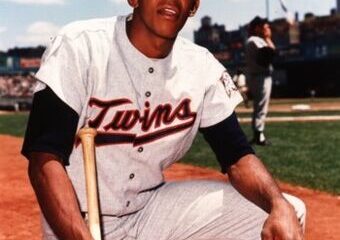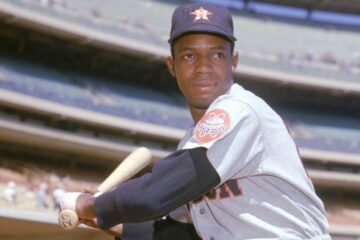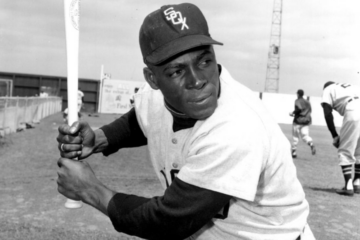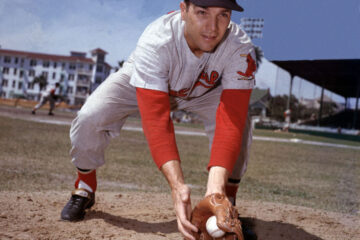The Hall of Fame Index: Nelson Cruz vs. Juan Gonzalez and Kirk Gibson

One of the dichotomies in baseball analysis is the difference between counting numbers and value numbers. Even when you consider rate statistics it becomes interesting to see what happens when we shift from conventional numbers into value numbers. That can clearly be seen when we look at the career of current designated hitter Nelson Cruz.
He has a career .873 OPS. He eclipsed 400 career home runs last season and has more than 1100 career RBI. Still, when you look at the value numbers you will see something else entirely. This is one area where similarity scores can help some. The top ten players on his list are all universally out of the Hall of Fame and most are not particularly close. There are some notable exceptions. Rocky Colavito appears third on the list and Dick Allen appears seventh. Neither of those players are going to be profiled today.
We are looking for players who brought similar value to the table. So, we are looking at how they fared in comparison with the league average at the time and we are considering both offensive and fielding value as well. Considering that Cruz has spent most of the latter part of his career as a designated hitter, his value will be more limited than those offensive numbers would indicate.
Career Value
| BWAR | FWAR | WS/5 | Total | |
| Nelson Cruz | 37.9 | 37.5 | 47.0 | 122.4 |
| Juan Gonzalez | 38.7 | 35.8 | 46.6 | 121.1 |
| Kirk Gibson | 38.4 | 35.9 | 43.6 | 117.9 |
Gonzalez is actually an eerily similar player in terms of value and aesthetics. In terms of personality they aren’t that similar. There was an infamous promo that the Rangers showed on the RSN of Gonzalez angrily pointing at his eye on third base. It came in his signature season when he nearly had 100 RBI at the all-star break. He was gesturing to the official scorer that he had robbed him of an RBI. Nothing better encapsulates the selfishness that doesn’t seem to describe Cruz.
Still, when you are considering skills they are very similar. They both were terrific power hitters that were at or near the top of the league in run production when they were at their peak. Neither were gifted base runners or valuable defenders, but we will actually see some interesting differences there.
Gibson was different in that he was perceived to be a better all-around player at his peak, but his peak was much shorter. Injuries just got in the way of what looked like a potential Hall of Fame career in his prime. He is a great example of why we wait ten seasons to profile any player in the Hall of Fame Index.
Peak Value
| BWAR | FWAR | WS/5 | Total | Index | |
| Cruz | 34.3 | 32.8 | 41.0 | 108.1 | 230.5 |
| Gonzalez | 33.8 | 30.3 | 38.6 | 102.7 | 223.8 |
| Gibson | 33.2 | 33.1 | 34.6 | 100.9 | 218.6 |
On the one hand, the current situation with the 2020 season being at best truncated is tragic for a player like Cruz. He has two or three seasons left in him at the maximum. The reality is that he could tumble off the table suddenly even under the best of circumstances. He could be robbed of one more 30+ home run season with 100+ RBI.
Yet, when you look at the overall index there is very little chance that he would have ever approached the customary 300 index wins that we often want players to get to. He just isn’t valuable enough. We see the same phenomenon when we look at David Ortiz and other designated hitters. It might be a weakness in the WAR formula, or it just might a signal of how valuable defense is.
Yet, all three players have the same problem. We know that in some cases they just couldn’t fill the ten seasons, and in some cases, they just didn’t have the defensive value to add to their overall value. Players like Gibson probably fare better in a system like JAWS that uses only seven peak seasons. It’s certainly a fair comparison, but he just comes out looking a little ordinary here.
Offensive Numbers
| OPS+ | Rbaser | OW% | wOBA | |
| Cruz | 132 | -15 | .639 | .370 |
| Gonzalez | 132 | 5 | .623 | .383 |
| Gibson | 123 | -6 | .624 | .358 |
I’d talk about a decline phase for Cruz, but that doesn’t seem to be a factor with him. He seems to get better with age. That’s one of those funny things that makes his Hall of Fame case seem that much better. When you consider him hitting 40 home runs and driving in 100 runs in his late thirties, you’d think he must have been a monster in his twenties. That’s just not the way his career arc went.
Gonzalez ends up being almost identical in overall value even his career took a more conventional path. He was that monster in his twenties and he fell off a cliff when it looked like he was on his way to Cooperstown. His story is more normal. All of us have that favorite player that just couldn’t sustain it for one reason or another.
Fielding Numbers
| Rfield | DWAR | TZOF | DWS/5 | |
| Gibson | -6 | -6.4 | -4 | 4.8 |
| Cruz | -18 | -11.6 | 15 | 4.9 |
| Gonzalez | -54 | -11.6 | -55 | 3.7 |
This is where the rubber meets the road. By most counts, Cruz was somewhere between solid and below average as a right fielder. His most famous might be the one where he misplayed what could have been the clinching out for the Rangers in the World Series. Still, the lion share of work in right field was decent enough. Along the way his teams figured they could keep him healthy and productive as a DH. That’s a completely different story to Gonzalez.
Different systems treat this situation differently. The competing WAR formulas punish DHs more for their lack of play in the field. As you can see, Cruz was a more valuable fielder according win shares despite his lack of time there. James is rewarding the average performance there more than the volume of performance. It would be more accurate to say he wasn’t punishing him nearly as much for his managers’ choice to DH him as a strategic move.
This sets up the debate for the Hall of Fame vote. Why someone gets DHed will matter to some voters. Cruz probably could play right field today. He may not make anyone forget Roberto Clemente, but he should be passable. He also might be limited to 100 or 120 games a season if forced to play in the field. He can continue to start every day as a DH. With his bat that’s not a particularly difficult choice.
Playoff Numbers
| PA | SLASH | HR | Runs | RBI | |
| Cruz | 181 | .287/.354/.659 | 17 | 33 | 35 |
| Gibson | 92 | .282/.380/.577 | 7 | 13 | 21 |
| Gonzalez | 66 | .290/.333/.742 | 8 | 11 | 15 |
Here are three slash lines you’d love to have on your team. Cruz’s teams advanced to two World Series in Texas without winning. He still has a chance in Minnesota and even if the season is abbreviated there is a chance the playoffs will be expanded. So, he could add quite a bit to this particular resume. Very few players have 20 or more postseason home runs, so he could put his name on a very exclusive list.
Playoff reputations are a fickle thing. Gibson arguably has the worst numbers of the three and he has the best reputation. The walk-off home run he hit against Dennis Eckersley in the 1988 World Series might be one of the five most famous home runs in World Series history. He only made it to two World Series, and he won both of them. Yet, it hasn’t been enough to move the needle in the Hall of Fame conversation.
BWAR MVP Points
| Top 10 | Top 5 | MVP | Points | |
| Gibson | 1 | 1 | 0 | 8 |
| Cruz | 1 | 0 | 0 | 3 |
| Gonzalez | 1 | 0 | 0 | 3 |
Knowing what we know about value today, Gibson’s 1988 MVP award is almost laughable. Even when you look at the conventional numbers, his 25 home runs wouldn’t come anywhere near the all-star game much less the postseason hardware. It was a different time. Yet, at his peak he was a decent two-way player, so at least he could bring some decent value to the table.
The other two demonstrate the fault with being offensive heavy. It is the ultimate uphill climb when it comes to breaking into an exclusive club like Cooperstown. Cruz continually puts up some of the best offensive numbers in the league year in and year out. 2019 was a great example. Had he remained healthy all season he likely would have been amongst the league leaders in home runs and RBI. He already was among the top five in OPS. That garnered him zero MVP votes.
Depending on the length of the 2020 season, it is not out of the realm of possibility that Cruz will surpass 450 home runs and 1300 RBI before he hangs up his spikes for good. Those totals are strong, but may not nearly be enough to get him to Cooperstown with him buying a ticket for admission.





